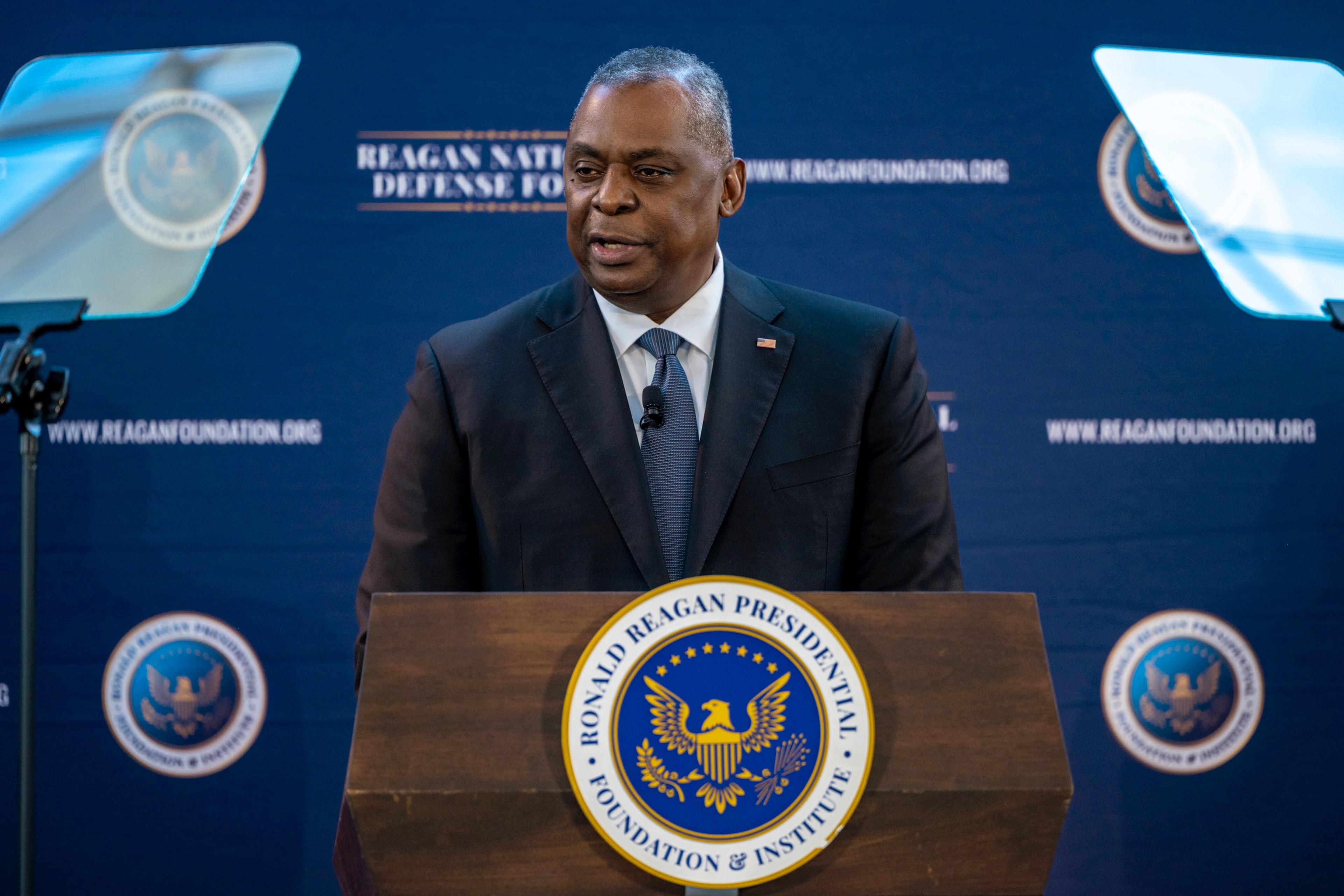RAMSTEIN AIR BASE, Germany — Dozens of uniformed officials looked to the head table Thursday morning at the dimly lit officer’s club here. They were staring at Lloyd Austin, America’s secretary of defense, the man who brought them all together.
But as the day began, the focus was less on Austin than what it means for him to depart.
In the last three years, the secretary has convened this Ukraine Defense Contact Group — a gathering of 50 countries supporting Kyiv — 25 times. Over that period, he’s helped bundle $126 billion in military aid and search through inventories for the weapons Ukraine needs the most. He’s done it when the Pentagon had full coffers, and when it was out of money, calling on Congress for more.
Now he’s handing over control of that group to a team that may not want to maintain it. On Jan 20, Donald Trump will return to the White House having called for a swift end to the war in Ukraine. European officials fear that message — and his nominee to replace Austin, Fox News host Pete Hegseth — may signal an end to the group without a clear alternative.
“It’s clear that a new chapter starts for Europe and the entire world just 11 days from now, when we have to cooperate even more,” said Volodymyr Zelenskyy, Ukraine’s president, at the start of the meeting.
‘Momentum’
Austin came here with a further $500 million of military aid drawn down from American stocks, a package that included air defense interceptors, small arms and spare parts. This final round of aid during the Biden administration brings its total security commitments to $66 billion, nearly half of the total raised by the entire Ukraine group.
The Trump administration will now have $3.8 billion in authority to keep sending stocks but no money left to replace them — and none left in a separate fund to support Ukraine over the long-term. Unlike in previous years, Congress is not yet considering more funding for Ukraine.
In part, the Pentagon has been here before. Last year, defense leaders spent months without any money left for such aid while waiting for Congress to approve a supplemental defense bill. Officials in the Pentagon and Europe later blamed that delay for Ukraine losing territory in the east, where Russia has since made gains.
Bill LaPlante, the Pentagon’s chief weapons buyer, told a group of reporters traveling with Austin that it took four to six months for Kyiv’s supply of weapons to dwindle last year. He expects the supplies to last longer this time, given the Biden team’s rush to send as much aid as it could before leaving office, alongside support from European partners.
“They’ve got a pretty good tranche of things,” LaPlante said of the Ukrainians. “It’s not going to be [gone] like that. It’s just you might lose momentum.”
RELATED

‘Drop the ball’
When the U.S. last ran out of money, which coincided with Austin’s hospitalization that he at first kept private from the president, some European countries proposed that the Ukraine group change hands. A plan to put it under NATO control never received much support, and allies are still apprehensive about the idea, a senior U.S. defense official said ahead of Austin’s visit.
“I don’t think anyone has found a useful and fully adequate substitute for U.S. leadership,” a separate defense official told reporters.
That leadership, the official argued, has been tied to Austin himself. He founded the group and, in the last few years, has convinced countries from Austria to Australia to share in its burden.
Much of that success has come as a result of unity among the countries that have so often come to Ramstein, a unity threatened by Trump’s talk of seizing Greenland from Denmark, comments Germany’s Defense Minister Boris Pistorius called “astonishing.”
Notwithstanding, as Trump prepares to take office, European officials are repeating many of the incoming president’s longtime complaints — that Europe and NATO aren’t paying a fair share of their security bills.
“The message is very clear for the European countries as well: to do more,” said Kaja Kallas, Europe’s top diplomat, who argued the European Union could take over the group’s role.
Pistorius said in a press conference Thursday that he wouldn’t speculate on the incoming administration’s policies, but he plans to visit Washington before mid-February, where he hopes to meet with his new counterpart.
“We think about options and alternatives, but the best solution would, in any case, be to continue the format,” he said.
American and European officials now openly say the best Ukraine can hope for on the battlefield is to reach a stronger position for eventual peace talks with Russia. And while equipment always helps, it won’t solve a more pressing issue for Kyiv: a lack of manpower after sustaining nearly three years of casualties.
In his opening remarks Thursday, Austin argued for a lasting commitment to keep up the support. If Russia sees the U.S. and its allies back away, he said, it will only grow more aggressive. “We must not stop now,” Austin said later in a press conference.
Zelenskyy, speaking more plainly, agreed.
“It would honestly be crazy to drop the ball now,” he said.
Noah Robertson is the Pentagon reporter at Defense News. He previously covered national security for the Christian Science Monitor. He holds a bachelor’s degree in English and government from the College of William & Mary in his hometown of Williamsburg, Virginia.





